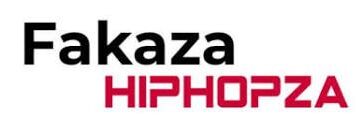
Disgraced South African Hockey Coach Deported from US Over Sex Crime Faces Fresh Allegations Back Home.
A former South African field hockey coach, Brett Clay, deported from the United States this year after being convicted in a sex crime case, is now confronting serious new accusations from women who allege ongoing abuse during their teenage years in KwaZulu-Natal.
US Conviction and Deportation
Clay, aged 40, had been working in the United States—primarily in New Jersey—when he was convicted in December 2024 of endangering the welfare of a child. According to court records, he exchanged sexually explicit messages with a 17-year-old player he coached at Mount Olive High School. Prosecutors revealed that Clay not only sent inappropriate content, but allegedly offered money in exchange for sexually graphic photos.
During his sentencing in February 2025, Clay admitted regret, calling his behavior “stupidity” and accepted full responsibility. A New Jersey judge declared him a danger to children, permanently banned him from working with minors, ordered a psychological evaluation, required DNA sampling, and placed him on New Jersey’s Megan’s Law registry. The court also mandated that he leave the US once his visa expired, which he did.
Resurfaced Allegations in KwaZulu‑Natal
Upon returning to South Africa, Clay drew new scrutiny as several women came forward with disturbing claims about his behavior while coaching in KwaZulu-Natal. One woman contacted the South African Hockey Association (SAHA), alleging Clay began grooming her from the age of 13, and alleging he abused “many adolescent girls” during his tenure before moving to the US .
She stated, “He should not be allowed to coach here,” adding: “I don’t want anyone else to go through what he did to me.” Her message spurred other former players—now adults—to submit similar allegations to SAHA.
SAHA Implements Safeguarding Measures
In response to the renewed controversy, SAHA issued a nationwide alert urging clubs, schools, and hockey associations to steer clear of Clay in any coaching or mentoring capacity. Gary Dolley, SAHA’s Senior Safeguarding Officer, emphasized:
“All our affiliates have been informed about the potential risk. We strongly advise that no organisation engages his services.”
The association also reinforced its commitment to player safety and urged individuals with further information to come forward.
From Trusted Mentor to Convicted Predator
Clay was once celebrated as a coach with international credentials. His deportation and legal conviction in the US not only shattered his reputation—but also triggered a wave of revelations from his time in South Africa. Victims and advocates are now demanding a lifetime ban for him from any coaching role in South Africa.
One former player told local media:
“We cannot allow predators to quietly re-enter the system. There must be accountability and protection for young athletes.”
Calls for Reforms in Safeguarding Policies
The Clay case has sparked a broader conversation about athlete safety in South African sports. Observers argue:
-
Stringent vetting protocols are needed—especially for coaches with foreign or multi-club licenses.
-
Mandatory criminal background checks should be required for anyone working with minors.
-
Improved whistle‑blowing channels must be established in schools and clubs.
What’s Next for Brett Clay?
Currently, there is no indication that Clay plans to re-enter the coaching profession in South Africa. However, with multiple allegations pending, victims and associations are demanding a permanent coaching ban.
SAHA has reiterated that the safety of players is their top priority and has pledged full cooperation with law enforcement if additional charges emerge.
ALSO CHECK: Taylor Swift Secures Full Ownership of Her First Six Albums After Buying Back Master Recordings
This is a deeply disturbing development for South African hockey, and highlights persistent vulnerabilities in safeguarding young athletes. The international dimension of Clay’s case—spanning the US and South Africa—underscores the need for robust cross-border vetting to protect children in sports.







 Fatal Seduction Season 2 Returns This August
Fatal Seduction Season 2 Returns This August ![Shocking moment a house is swept away in deadly New Mexico flash floods [Watch]](https://fakazahiphopza.co.za/wp-content/uploads/2025/07/Flood-150x150.jpg) Shocking Moment A House Is Swept Away In Deadly New Mexico Flash Floods [Watch]
Shocking Moment A House Is Swept Away In Deadly New Mexico Flash Floods [Watch]  Football Anthems in South Africa: From Kwaito to Amapiano
Football Anthems in South Africa: From Kwaito to Amapiano  Top Amapiano Collaborations of All Time: Best Amapiano Collabs & Features
Top Amapiano Collaborations of All Time: Best Amapiano Collabs & Features  How Maskandi Music Preserves and Promotes Zulu Culture in South Africa
How Maskandi Music Preserves and Promotes Zulu Culture in South Africa